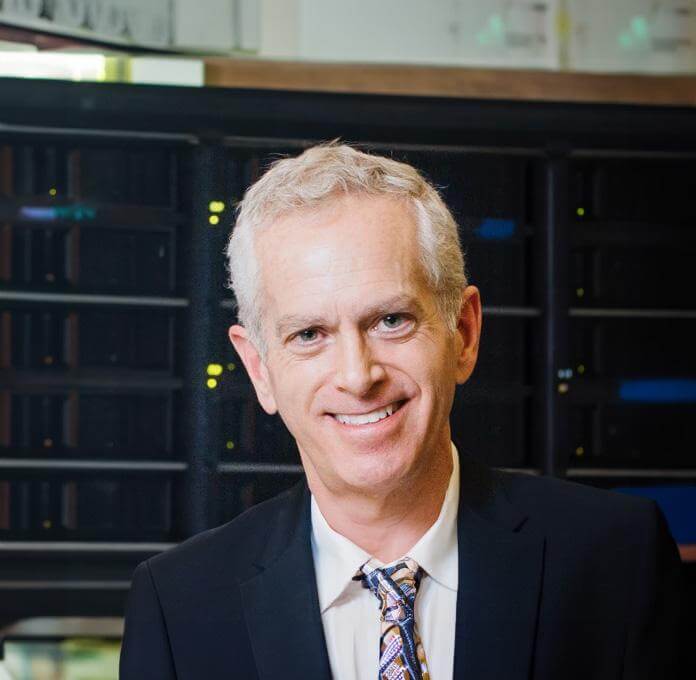Studying low-likelihood high-impact climate events in a warming
world requires massive ensembles of hindcasts to capture their
statistics. It is currently not feasible to generate these
ensembles using traditional weather or climate models, especially at
sufficiently high spatial resolution.
We describe how to bring the power of machine learning (ML) to
generate climate hindcasts at four to five orders-of-magnitude
lower computational cost than conventional numerical methods. We
show how to evaluate ML climate emulators using the same rigorous
metrics developed for operational numerical weather prediction.
We conclude by discussing the prospects for studying
the causes and statistics of low-likelihood high-impact extremes
using huge ensembles generated using these ML emulators.
Bio
William Collins is an internationally recognized expert in climate modeling and climate change science.
His personal research concerns the interactions among greenhouse gases and aerosols, the coupled
climate system, and global environmental change.
Dr. Collins is a Fellow of the American Association for the Advancement of Science (AAAS), the
American Physical Society (APS), the American Geophysical Union (AGU), and the American
Meteorological Society (AMS). He was awarded the AGU’s Tyndall History of Global Environmental
Change Lectureship in 2019. He was a Lead Author on the Fourth Assessment of the Intergovernmental
Panel on Climate Change (IPCC), for which the IPCC was awarded the 2007 Nobel Peace Prize, and has
also served as Lead Author on the Fifth and Sixth Assessments. His role as Chief Scientist in launching
the Department of Energy’s Accelerated Climate Model for Energy (ACME) program was awarded the
U.S. Department of Energy Secretary’s Achievement Award on May 7, 2015.
Before joining Berkeley and Berkeley Lab, Dr. Collins was a senior scientist at the National Center for
Atmospheric Research (NCAR) and served as Chair of the Scientific Steering Committee for the
DOE/NSF Community Climate System Model project.
Dr. Collins received his undergraduate degree in physics from Princeton University and earned an M.S.
and Ph.D. in astronomy and astrophysics from the University of Chicago.


